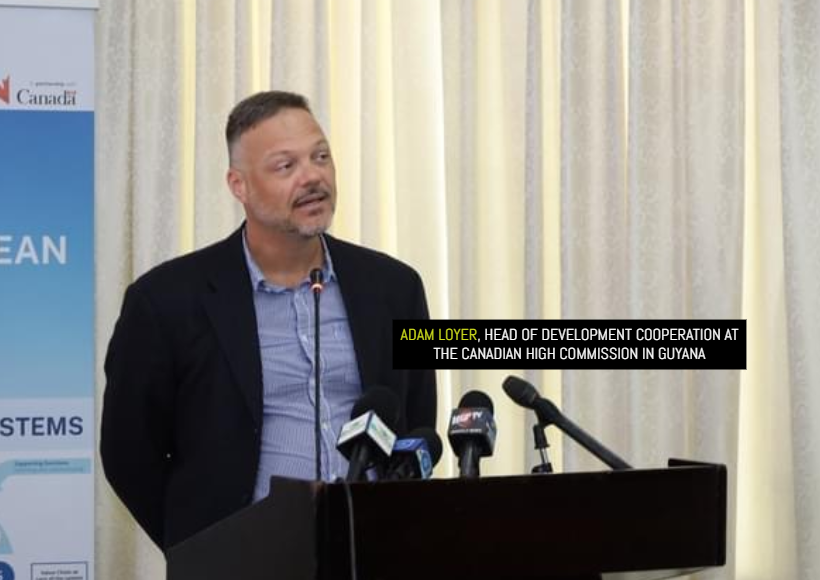Adam Loyer, the Head of Development Cooperation at the Canadian High Commission in Guyana, has noted that the country is a beneficiary of Canada’s ambitious $20 million Sustainable Agriculture in the Caribbean project. He noted however that several conditions are necessary to ensure there is successful implementation.
The project’s primary mission is to enhance the economic well-being of women and youth in the agricultural sector.
During yesterday’s agriculture symposium at the Arthur Chung Conference, Loyer emphasized a pivotal condition for the project’s success – proper engagement among all stakeholders. He warned that without this, the development of the sector could be in jeopardy.
The initiative is implemented by the World University Service of Canada (WUSC) with $20 million in funding from the Government of Canada through Global Affairs Canada (GAC). It is a five-year sustainable agricultural project that aims to benefit around 12,000 farmers from marginalized groups in Guyana, Dominica, Jamaica, St. Lucia, and Suriname. It provides training to these farmers and introduce them to climate-smart practices and technologies.
At the symposium, Loyer also called for the adoption of innovative farming techniques, underlining the significance of sharing resources and expertise to improve agricultural practices, provide access to technology, and effectively disseminate information to farmers. He highlighted that technology and sustainable practices are continually evolving, making the embrace of innovation essential. Whether it’s precision agriculture or climate-resistant crop varieties, modern techniques enable farmers and market actors to overcome challenges and seize new opportunities.
Agriculture Minister, Zulfikar Mustapha echoed Loyer’s sentiments, emphasizing the critical role of engagement in the sector’s growth and development. He said, “As we advance the agriculture sector towards expansion…diversification, modernization, resilience, and competitiveness, is vital to pool resources and create consortia to capitalize on opportunities in agriculture and agro-processing in Guyana.”
Minister Mustapha also stressed the importance of both public and private investments in the expansion of Guyana’s agriculture sector. He elaborated on the government’s commitment to reconfigure policies within the sector to foster an investment-friendly climate.
Notably, a driving force behind Guyana’s agricultural potential lies in the rising demand for CARICOM self-sufficiency.













